Last Updated on December 17, 2025 by Hannah Stephenson
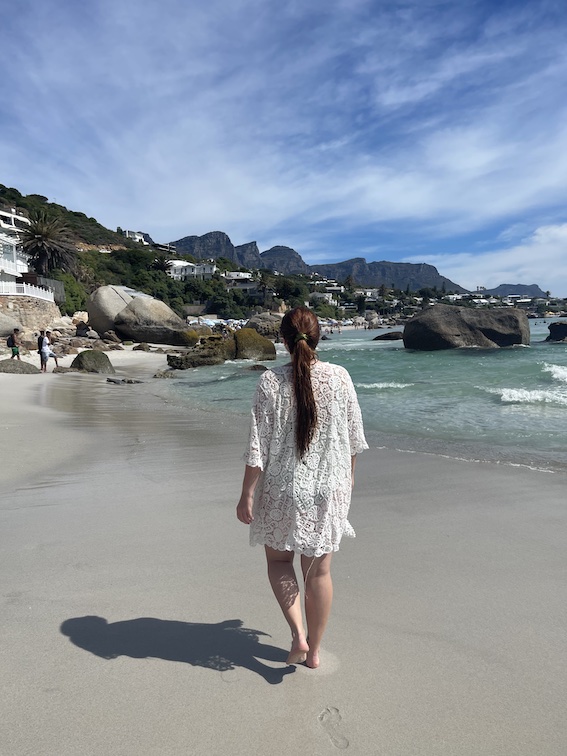

Thinking about visiting Cape Town?
You’re in for SUCH a treat. I truly believe that this is the best city in the world!
But first, you need to work out what’s what. And trust me, I know how overwhelming it can feel having to research somewhere totally new!
I’ve lived in Cape Town since 2021, so rest assured that this guide contains everything you need to know to start planning your trip. From visa requirements and getting around to where to stay, what to do, and what to skip, I’ve got you covered.
Let’s get into it!
- Visa Requirements
- Best Time of Year to Visit Cape Town
- Getting Around
- Where to Stay in Cape Town
- Language and Culture of Cape Town
- Currency
- Loadshedding
- Top 10 Things to Do
- 1. Head up Table Mountain
- 2. Relax on the Clifton Beaches
- 3. Get tipsy on the Franschhoek wine tram
- 4. Visit the penguins at Boulders Beach
- 5. Explore Bo Kaap
- 6. Hike Lion’s Head
- 7. Hang out at the Oranjezicht Market
- 8. Visit Cape Point and Cape of Good Hope
- 9. Enjoy sunset at Kloof Corner
- 10. Drive Chapman’s Peak
- What to SKIP in Cape Town
- 5 Hidden Gems in Cape Town
- 5 Best Restaurants
- 5 Best Bars
- Tipping Culture
- Other Useful Things to Know
- Safety Tips
- To sum it all up….
Visa Requirements

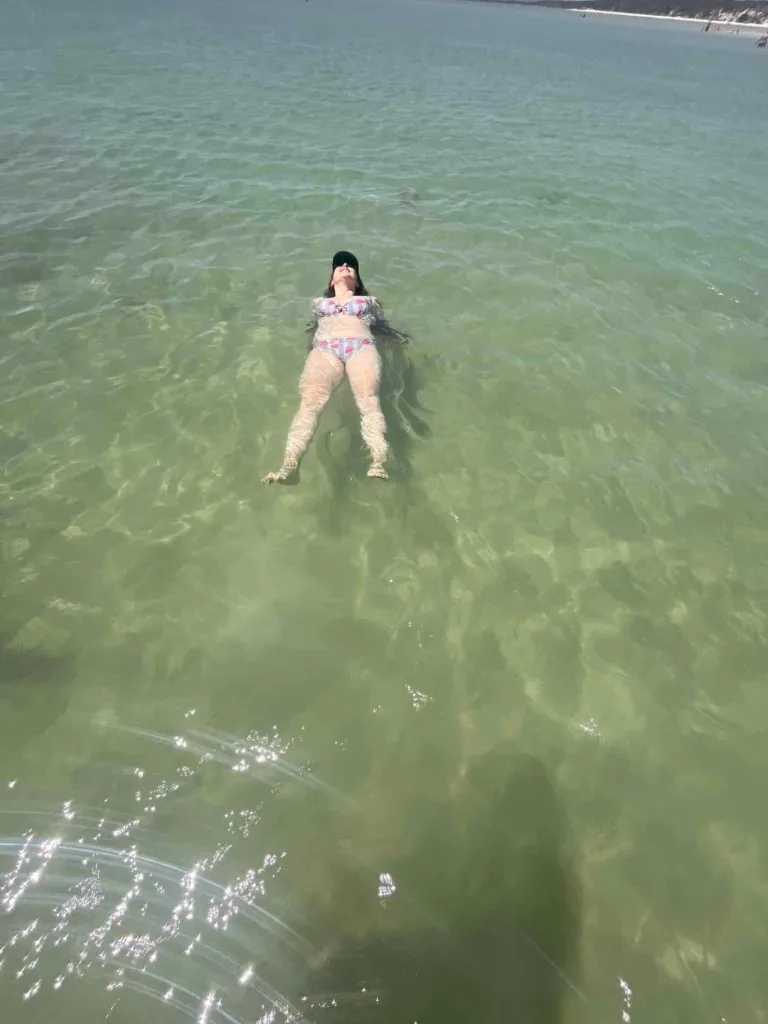
Lots of people are able to get a 90-day visa on arrival in South Africa. As a UK citizen, I’m entitled to this, as are those from the USA, Australia, and most of Europe, South America, and Asia. You can check the full list of visa exempt countries here.
If you’re from a “visa exempt” country, you just get a visitor’s visa stamp on arrival. You don’t need to do anything beforehand. I’ve also never been asked to show proof of funds or return flights.
The only thing you do need is two blank pages in your passport, and 30 days validity after your intended exit date. For example, if you plan to leave South Africa on 25 May 2025, your passport needs to be valid until at least 24 June 2025.
Visa extensions
If you’d like to stay longer than 90 days, it’s possible to extend your tourist visa for another 90 days. So if your extension is granted, you can stay for 180 days total.
This process can be unreliable and a bit of a headache, but I’ve done it three times and it has always worked out in the end. If you think you’d like to do this, I strongly recommend checking out my in-depth guide to extending your tourist visa beforehand.
Best Time of Year to Visit Cape Town

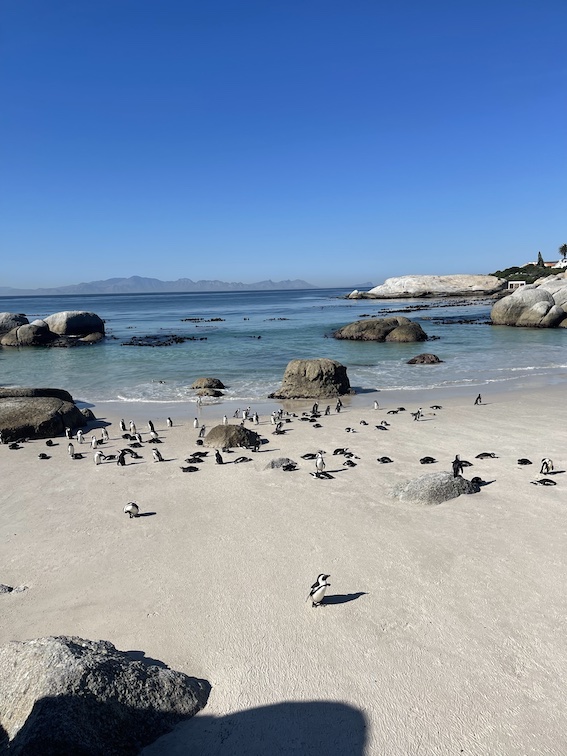
Summer
December to February is the peak summer season in Cape Town, as that’s when the weather is warmest and the city is full of both domestic and international tourists.
Personally, I find that December can feel a little bit too busy and crazy at times, but it’s ideal if you’re looking to go out and party a lot.
Personally, my favourite months in Cape Town are February and March. The weather is still warm and the days are long. There’s generally less wind and fewer crowds to contend with, but still a great atmosphere around town.
Shoulder seasons
April and May can also be really nice with plenty of sunshine, and temperatures tend to hover between 20-25°C (68-77°F). October and November are much the same! For me, the shoulder seasons are the perfect time of year to hike and explore the winelands, as it gets hotter inland than it does by the coast. Plus, it’s still warm enough to fit in some beach time – my favourite!
Winter
Winter in Cape Town is generally cool with some wet days, although as a Brit, I wouldn’t go as far as to say that it’s cold. You don’t need a heavy-duty winter coat, but make sure to pack a jacket and some jumpers. Winter is a great time of year for whale-watching, and there are plenty of places to do this in and around Cape Town.
Getting Around
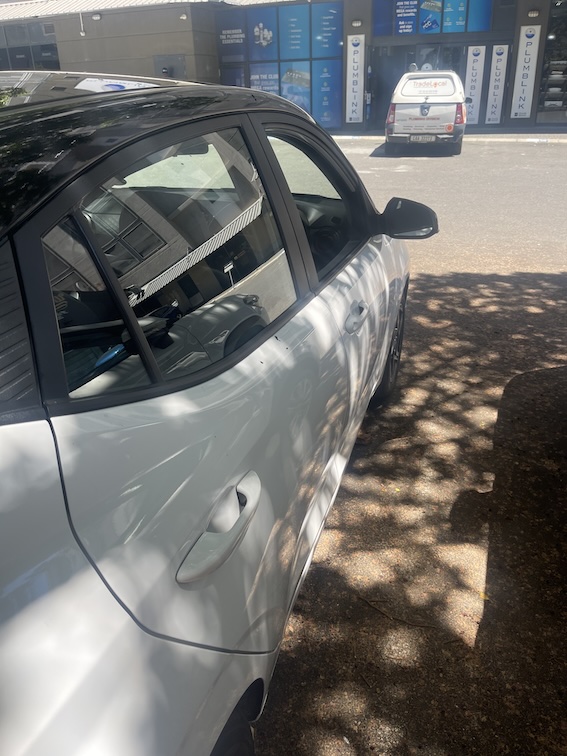
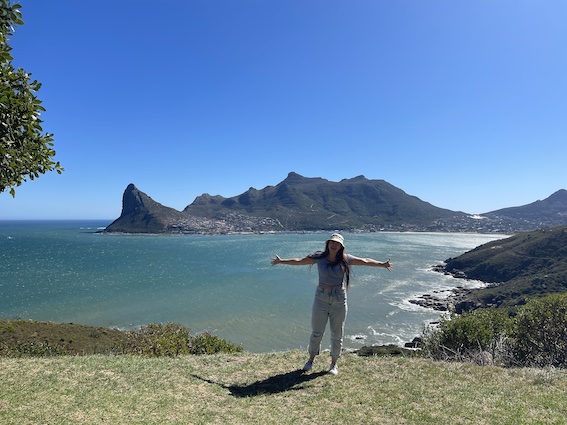
Cape Town is very much a “driving city” in that there’s not a lot of public transport here. So to get around, I recommend either hiring a car or using a combination of Uber and tours.
Hiring a car
Hiring a car gives you a lot of freedom to get around Cape Town. I use Discover Cars to find reputable and affordable rentals, and have only had good experiences with them.
The best thing about renting a car in Cape Town is that it allows you to explore places beyond the city limits that it’s difficult (and expensive) to Uber to. If you’re considering going to stay in the winelands or doing lots of day trips, then it’s definitely worth hiring a car.
If you’re not sure whether this is the right option for you, I’ve got a guide to driving in Cape Town and an article on how to decide whether to hire a car, so be sure to check those out!
Uber

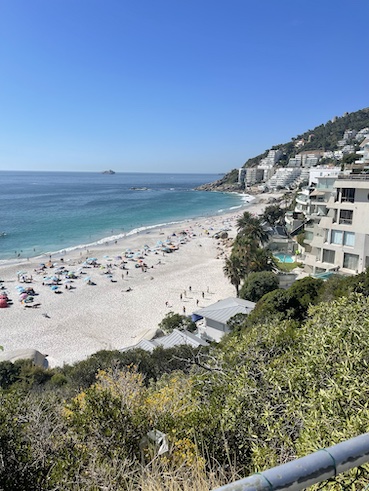
Uber in Cape Town is safe and reliable. Pickup is usually prompt and if you’re spending pounds, euros, or dollars, it’s also really affordable.
In fact, if you’re just going to be staying in the city, then using Uber can work out cheaper than hiring a car. Plus, I love not having to worry about navigation or parking!
However, Uber is also only really good for getting around the city. It pays to have a rental car if you want to go further afield.
I’ve used Uber alone at night many times and have never had an issue. Drivers are usually really friendly, too. Just make sure that you check the number plates are correct before you get in the car.
MyCiti bus
The MyCiti bus is a safe and affordable way of getting around Cape Town, although I don’t think it’s really ideal for tourists. The network covers the city centre quite well – you can check out the map here.
You’ll need to buy a MyConnect card for R40 and then top it up, but they’re available all over the city. It’s really affordable, and each journey typically costs between R12 and R16.
Township taxis
Township taxis are big shuttle vans that go all over the city centre and right out to the townships. I have never used one, and nor have any of my friends. They drive like absolute maniacs and I’ve been told that they can smell tourists a mile off. They won’t hesitate to rip you off!
You might get approached by these guys at the airport, so just make sure to tell them a firm “no.” They often harass me while I’m waiting for my Uber pickup, which is really irritating after a long flight, and a big reason why I’ve started using private transfers instead.
Getting from the airport to the city
Fortunately, it only takes around half an hour to get from Cape Town International Airport to the city. I have a full guide to the best way to do this, but the short answer is either pick up your hire car at the airport or book a private transfer.
Where to Stay in Cape Town

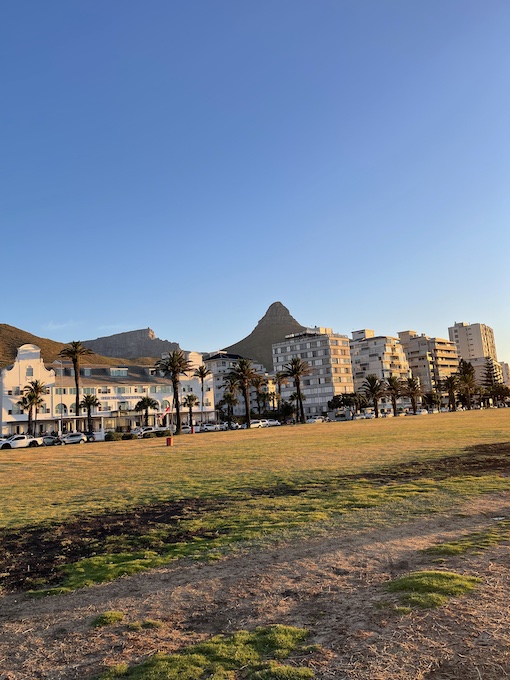
There are plenty of great neighbourhoods to stay in in Cape Town, so the right one for you really depends on what you’re looking for. I’ll give you a quick summary of my top choices here, and a few accommodation options within each one.
De Waterkant


Personally, I think that De Waterkant is the best area to stay in Cape Town, because it’s safe, pretty, and ideally located. Okay, I may be a little biassed since I live here, but I challenge you not to fall in love with its colourful cottages and cobbled streets!
The beaches, the V&A Waterfront, and the city’s best nightlife is all within easy reach, and there are tons of cute cafes and restaurants around. Plus, there’s a lot of security around here, which is a huge bonus.
Where to stay in De Waterkant:
- De Waterkant Cottages – $$$
- The Grey Hotel – $$
Green Point
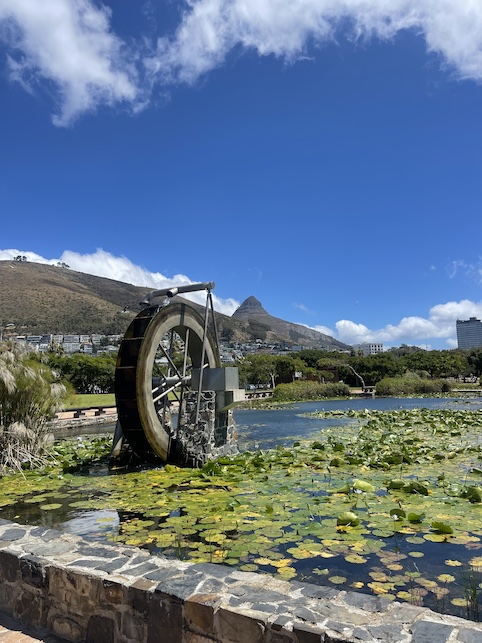
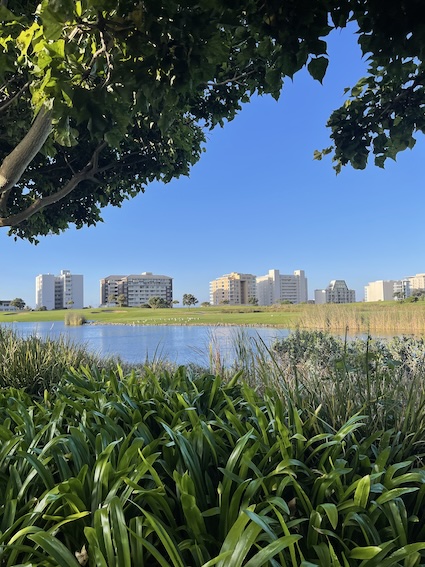
Green Point is a lovely and mostly residential neighbourhood. There are some nice restaurants here, as well as a big park and the DHL stadium.
For me, the biggest draw is that it’s super close to all of the city’s best bits! From Green Point, you can walk to Sea Point or the V&A Waterfront, drive or Uber to the beach in just 15 minutes, or get to one of the city’s best nightlife spots in just 10 minutes.
Where to Stay in Green Point:
- Romney Parl Luxury Apartments – $$$
- ANEW Hotel Green Point – $$
- Never@home Hostel – $
Sea Point
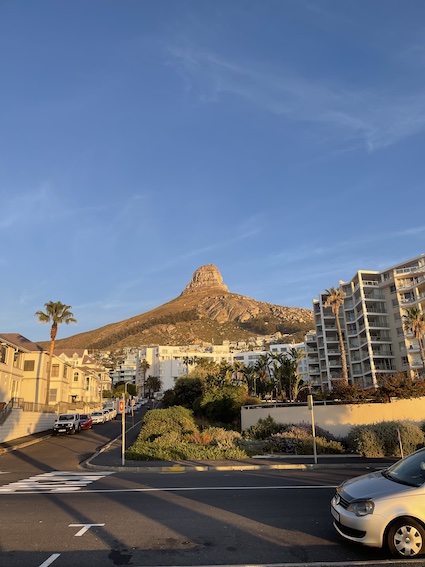
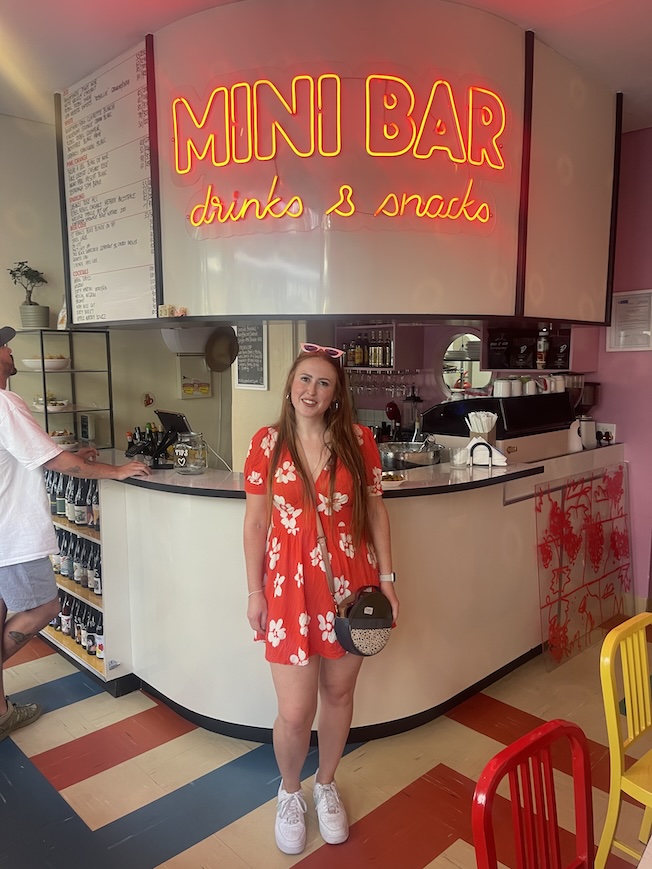
I lived in Sea Point for almost a whole year when I first moved to Cape Town and LOVED it. It’s a fun neighbourhood with some nice bars and restaurants to check out – make sure to head to Arthur’s Mini Super for drinks!
Best of all, though, it’s got the promenade! Nothing beats a scenic walk next to the sea if you ask me, and I also love heading to Saunders Rock Beach for sunset.
Sea Point is also within easy reach of the Clifton Beaches, the CBD, and pretty much everywhere you want to go in Cape Town! It’s very walkable and has a fun vibe without being too loud or busy.
Where to stay in Sea Point:
- The President Hotel – $$$
- Latitude Aparthotel – $$
- Protea Hotel by Marriott – $$
Gardens


For those who want to party, Gardens is the ideal neighbourhood because lots of the city’s best bars are right here! Gardens is home to buzzy Kloof Street, which is lined with fun bars, and it’s within easy reach of other nightlife hotspots like Bree Street, as well as the beaches and the Waterfront.
The only downside to Gardens is that it’s not the safest neighbourhood. For this reason, I personally much prefer De Waterkant. However, as long as you’re cautious, you may be able to save a little money by staying here.
Where to stay in Gardens:
Tamboerskloof
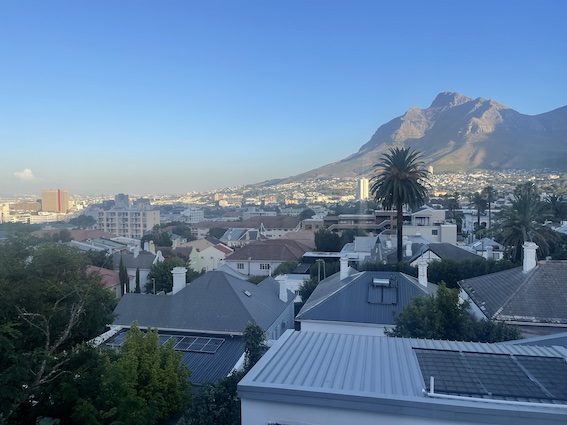
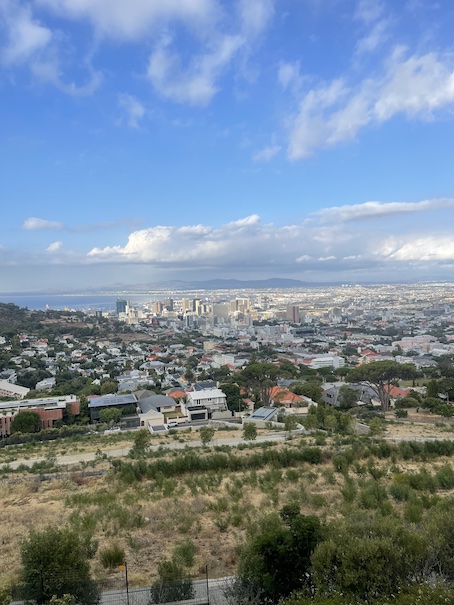
Tamboerskloof sits on the slopes of Lion’s Head and Signal Hill, which means that you’re likely to enjoy some fantastic views when staying here. I love the Victorian architecture of this neighbourhood and the small intersection where you find fun bars like P&G and the Moveable Feast. It’s close to Camps Bay and within easy reach of pretty much everywhere, from the Waterfront to the Clifton Beaches and the CBD.
Where to stay in Tamboerskloof:
- The Cape Milner – $$$
- Cloud 9 Boutique Hotel & Spa – $$
- Radium Hall Guesthouse – $
The CBD
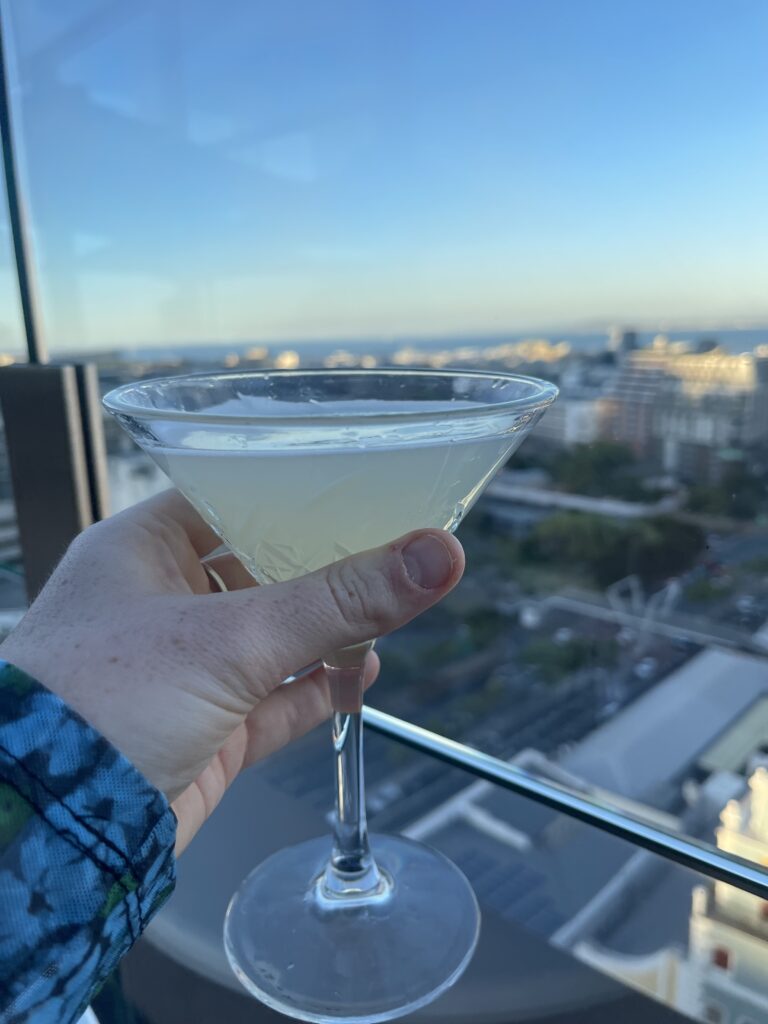
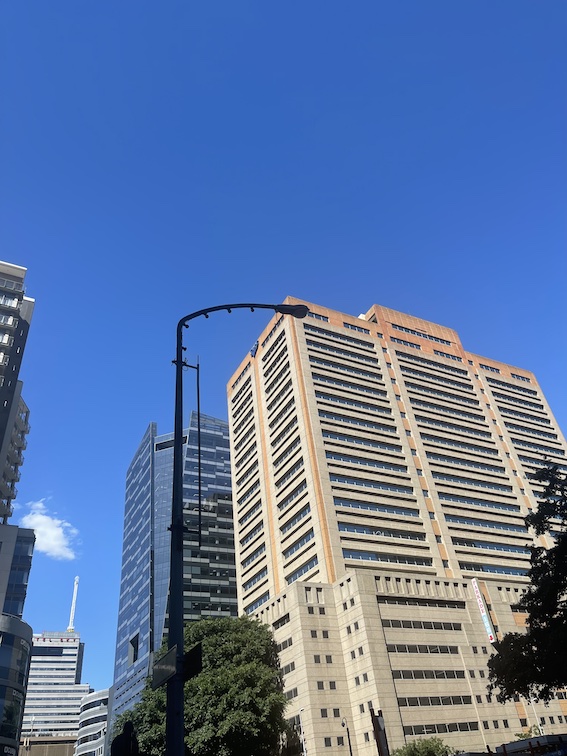
The advantage of the CBD is that it’s super central, and there’s tons of great nightlife here on Bree Street and Wale Street.
One of the best things about staying here is that a lot of buildings don’t get load shedding (more on that to come), so you get power 24/7, which is not the case everywhere in the city.
However, I didn’t love everything about staying here because I constantly got cat-called and harassed while walking around. I didn’t feel super comfortable walking around alone here.
Where to stay in the CBD:
- Labotessa Luxury Boutique Hotel – $$$
- Hotel Sky – $$
- 91 Loop Boutique Hostel – $
Camps Bay
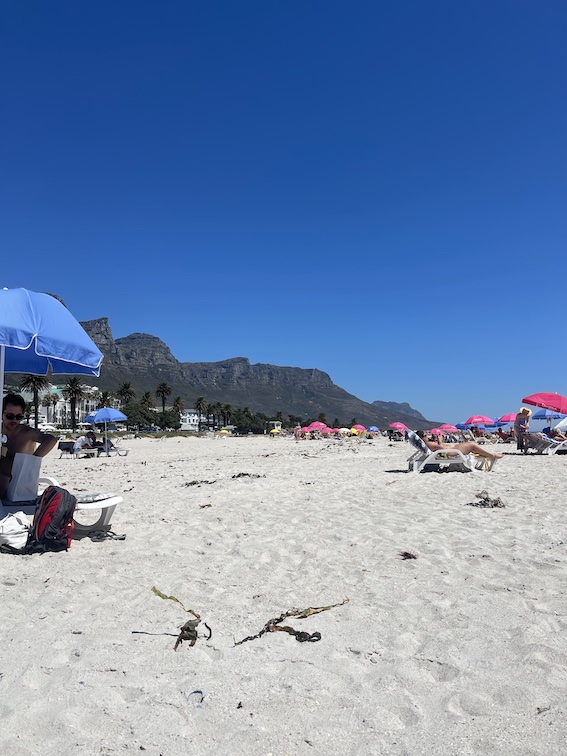

Camps Bay is probably Cape Town’s most popular tourist neighbourhood. Known for its beautiful beach, bougie restaurants, and vibey bars, it’s one of Cape Town’s most upscale areas. It wouldn’t be my first choice to live but for a short stay, I can’t lie, it’s pretty lovely. You get a real holiday vibe around here.
Camps Bay is pretty safe and I love the gorgeous homes and views of the Twelve Apostles here. It’s not a cheap place to stay, though, but if you’re after something luxurious, you’ll be spoilt for choice.
Where to stay in Camps Bay:
- South Beach Boutique Hotel – $$$
- POD Camps Bay – $$$
Language and Culture of Cape Town

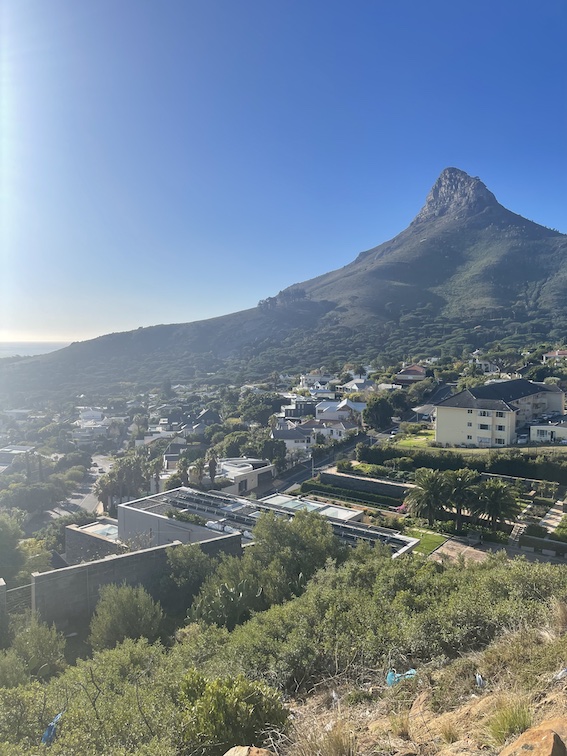
Cape Town is a very multicultural city. English is widely spoken, as are Afrikaans and Xhosa. However, English is very much the business language in Cape Town so as long as you speak English, you’ll be fine.
Cape Town is also LGBTQ-friendly, especially De Waterkant, which is home to lots of gay bars and even a rainbow flag crosswalk! The people here make visitors feel so welcome, which is a big part of why I decided to stay.
Currency
The official currency of South Africa is the rand. It’s not necessary to order cash before you arrive in Cape Town, as lots of places here don’t even take cash anymore!
You can pay with card pretty much everywhere, and tipping is done on card, too – more on that to come, as they do it slightly differently in South Africa. I don’t think I’ve ever been unable to pay with a card in SA – even some of the beach hawkers have card machines nowadays.
Loadshedding
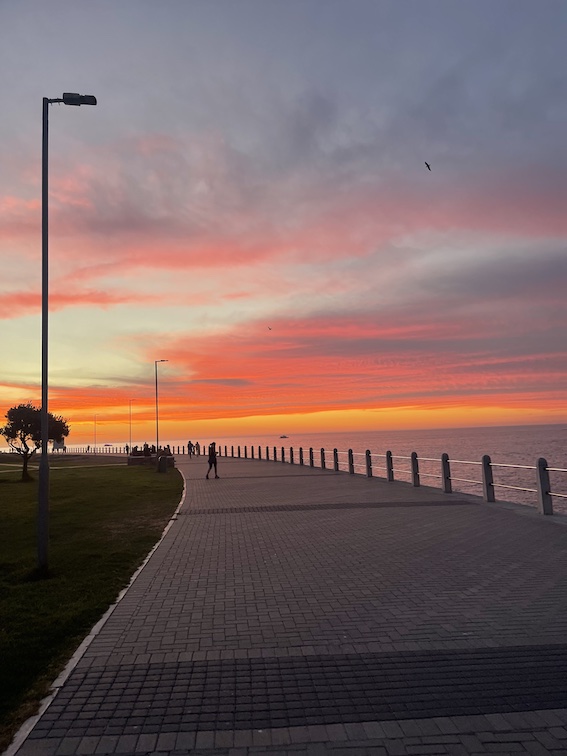
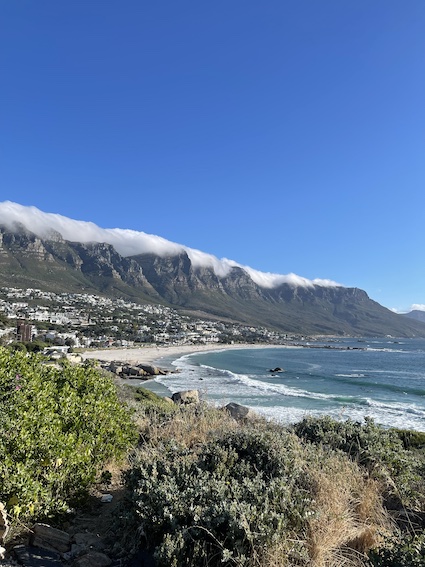
Honestly, the worst part of living in South Africa is load shedding. Load shedding is when the electricity is shut off for 2-4 hours at a time in certain areas.
However, it has been a lot better over the past two years. I do recommend downloading the EskomSePush app so that you will be notified if it is going to rear its ugly head again!
If it does, some hotels and modern apartments have backup generators, especially in the CBD and De Waterkant. Some cafes and restaurants close during load shedding or serve a limited menu, and lots of bars have at least a partial backup supply of power.
Top 10 Things to Do
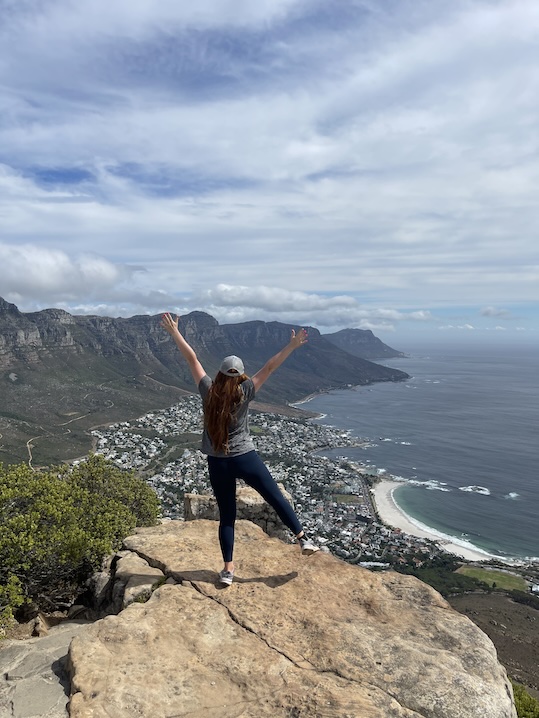

Okay, so now that the business end of things is out the way, let’s get to the fun stuff: the best things to do!
There’s SO much to do in Cape Town that we could be here all day. I’ve got a huge article on the best things to do so for the sake of this introduction to Cape Town, I’m just going to share my top 10 here. These are what I consider the must-dos in Cape Town that will ensure you get a real feel for the city.
1. Head up Table Mountain

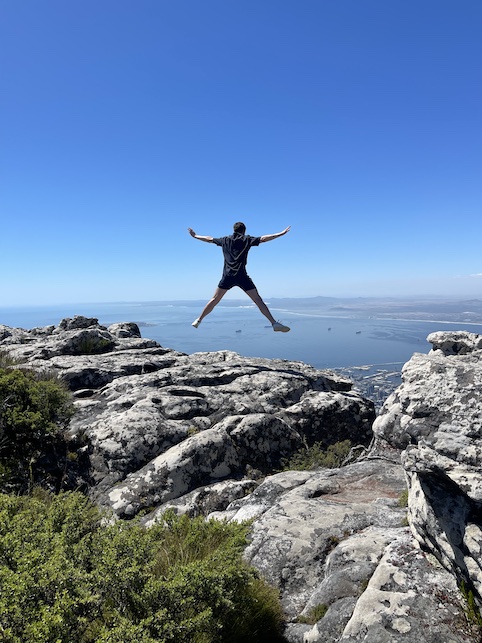
Whether you hike or take the cable car, heading up Table Mountain is an absolute must while you’re in the city. It’s hard to imagine Cape Town without Table Mountain towering over it, and the views from the top are absolutely stunning.
If you’re going to hike, there are four official trails to take you to the top. I absolutely loved the India Venster route!
2. Relax on the Clifton Beaches

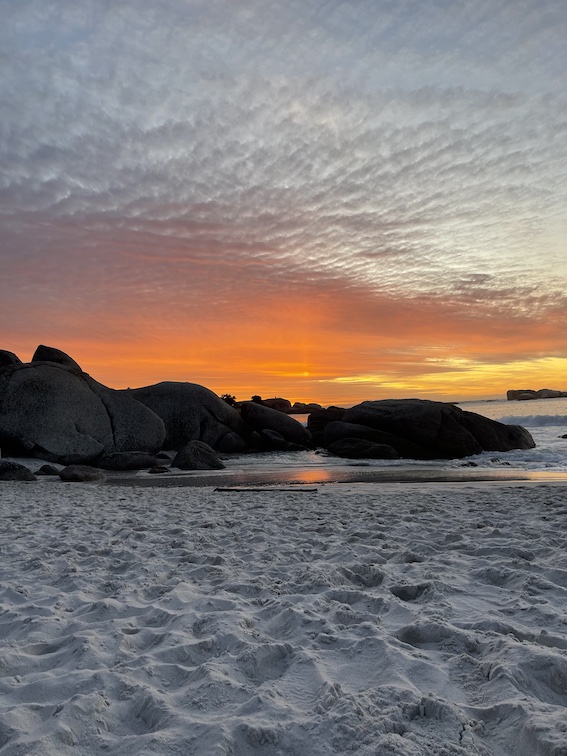
You can’t come to Cape Town without visiting the stunning Clifton Beaches. I love swimming at Clifton 4th Beach, but they’re all beautiful.
The first three beaches have a lot of steps, but Clifton 4th has a lot less than its sisters. You can usually rent sunbeds and umbrellas on any beaches although there are fewer hawkers around on Clifton 1st, which is the quietest beach.
3. Get tipsy on the Franschhoek wine tram


Wine tasting is always fun but the Franschhoek wine tram takes it to the next level. I love hopping on and off at the valley’s most beautiful vineyards, and enjoying the area’s best wine and cheese!
If you’ve got time, you can spend a few days in Franschhoek and do the wine tram from there.
I’ve also taken this full day wine tram tour from Cape Town. It includes transport and wine tram tickets, and honestly it made everything so easy. You can read my full review of the tour here!
4. Visit the penguins at Boulders Beach
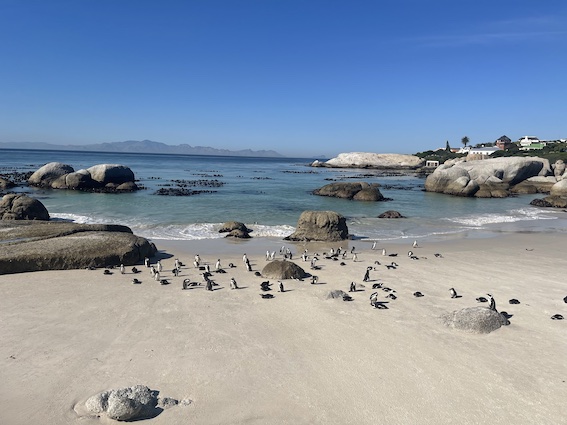

Boulders Beach is about a 45-minute drive from Cape Town, and it’s home to a colony of adorable African penguins. For R245, you can walk along the boardwalks on the beach and see these little guys close up, without disturbing them.
I’ve visited twice and loved it both times, once by myself and another time on this sightseeing tour which also took me to Cape Point and Cape of Good Hope. Either way, it’s so much fun and such a sweet thing to do!
5. Explore Bo Kaap
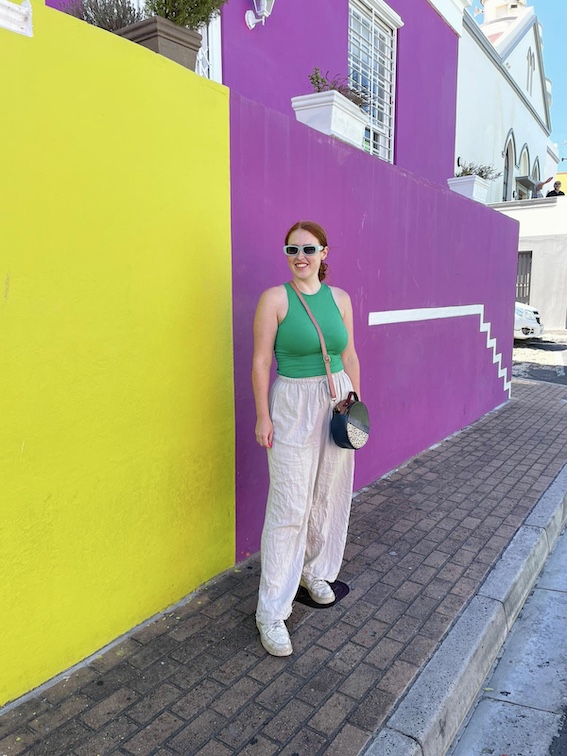
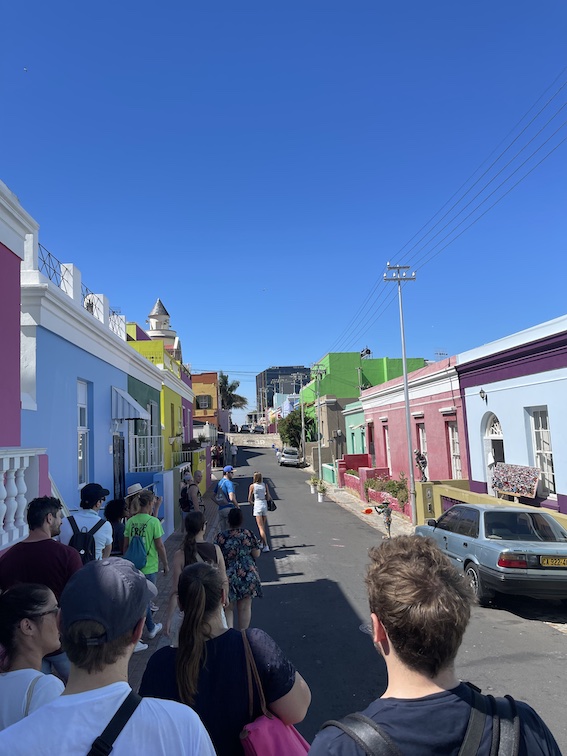
Bo Kaap is Cape Town’s historic Cape Malay quarter, which is best known for its brightly coloured houses. I think that visiting Bo Kaap is a must to learn about the area’s history – which is super interesting, FYI – and to try all of the delicious Cape Malay food around.
6. Hike Lion’s Head
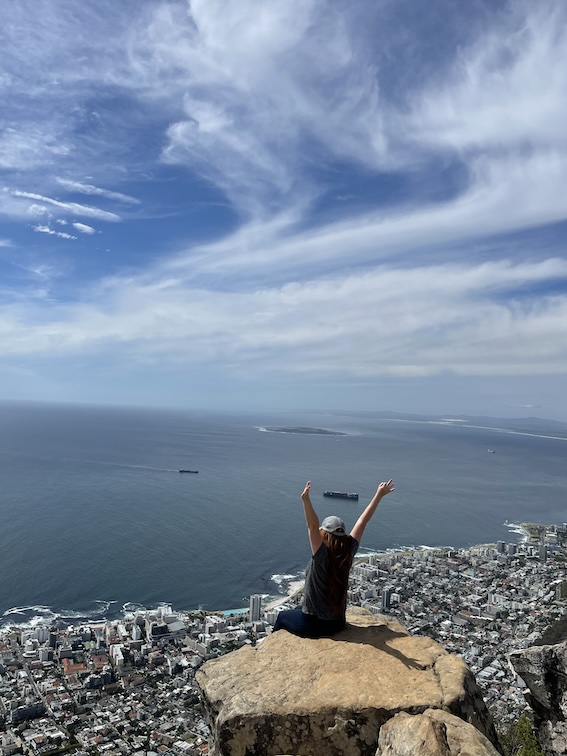
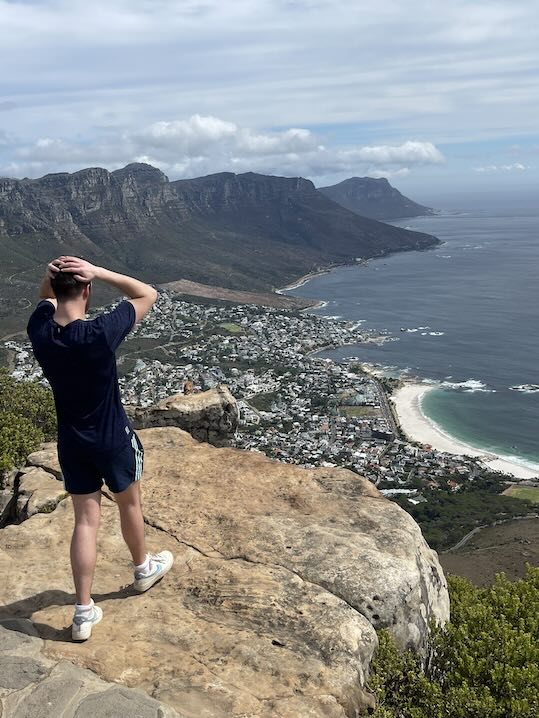
Lion’s Head is like Table Mountain’s younger brother. It’s a smaller but just as distinctive figure in Cape Town’s skyline and I’ve hiked to the summit and back in about 3 hours, so it’s easier to climb.
I loved the panoramic views from the top and I really enjoyed the hike itself, since it loops around the mountain, allowing you to enjoy different views as you ascend.
It’s fine to do this by yourself or in a pair, although I would recommend booking this tour if you want to do a sunrise or sunset hike. The tour includes headlamps and snacks, and it’s definitely worth having a guide to help you find your way in the dark.
7. Hang out at the Oranjezicht Market

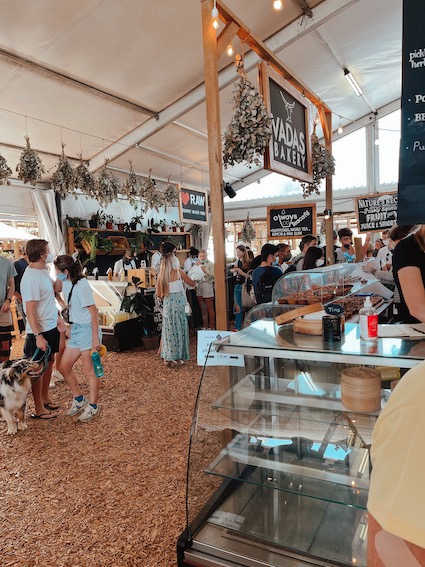
Spending a Saturday or Sunday morning at the Oranjezicht Market is one of my favourite things to do on the weekends in Cape Town. During the summer, it also runs on a Wednesday night!
There’s SO much yummy food on offer here. Whatever you do, do NOT miss the pasteis de nata from Vadas Bakery!
I also love browsing all of the locally made goods, too. I’ve actually found some really cute clothes here and the luxurious candles, body lotions, craft gins, and leather goods make great gifts for your loved ones back home – or for yourself!
8. Visit Cape Point and Cape of Good Hope
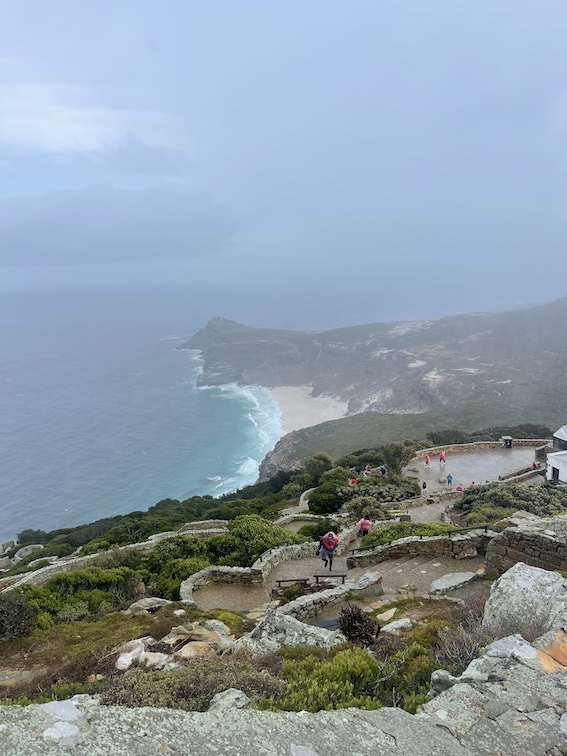
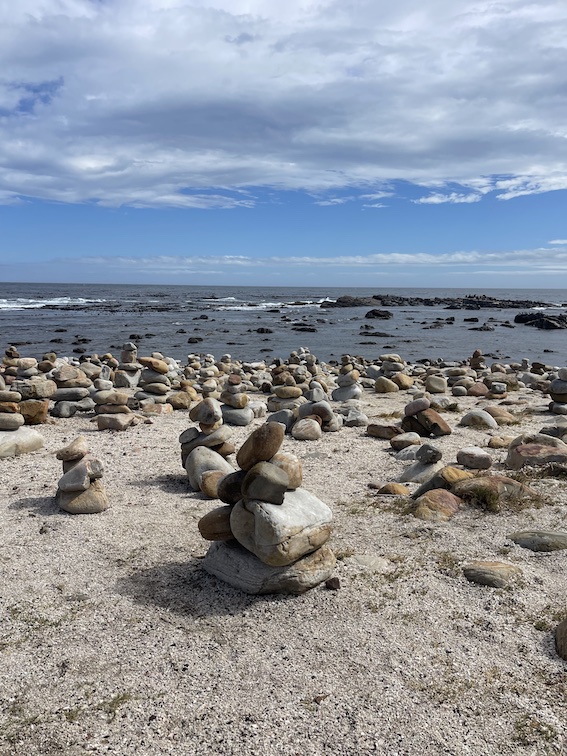
I’ve lumped these two rocky promontories together since they’re very close to one another. Cape Point is the more beautiful of the two, in my opinion, but it’s also really cool to visit Cape of Good Hope because it’s a pivotal place in South African history (and indeed world history). It’s also the southeasternmost point of the continent!
It takes about an hour to drive here from the city but I actually visited as part of a sightseeing tour – you can read my full review here.
9. Enjoy sunset at Kloof Corner


There are tons of fantastic places to watch the sunset in Cape Town, but for me, Kloof Corner is the top spot. It’s an easy, 20-minute hike from the trailhead to the viewpoint and the views are just spectacular.
An insane panoramic view of Cape Town is always good, but at sunset it’s just incredible. I do this fairly often with my friends but it still takes my breath away every single time.
10. Drive Chapman’s Peak


Chapman’s Peak Drive is one of the most beautiful roads in the world, and it’s SO worth the toll fee of R61 per car.
The first time I drove this road, my friends had randomly called me up one morning and asked if I wanted to see Chapman’s Peak. I said “sure” but I definitely was NOT expecting it to be so stunning.
The road stretches between Hout Bay and Noordhoek, which are both beautiful seaside suburbs of Cape Town, and the contrast of the rugged cliffside against the (usually) blue sky and ocean is just stunning. There are 114 bends along just 9 kilometres (5.6 miles) of road, so take it slow, and pull over to snap some photos when you can.
What to SKIP in Cape Town
I genuinely believe that every moment in Cape Town is precious, which is why I have a few activities that I’d recommend skipping, so that you can put your time to better use. Of course, these are all a matter of personal taste, so do what makes you happy, but this is what I’d skip…
Shark cage diving
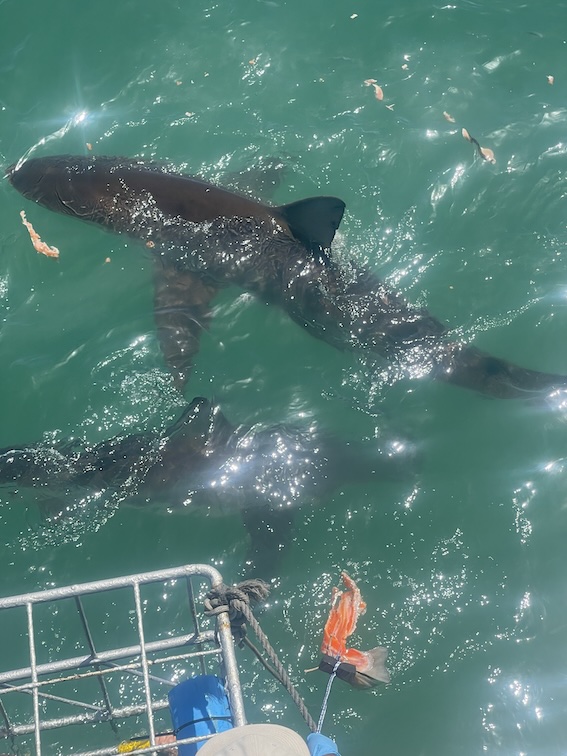

I was really excited to go shark cage diving, but I found the experience to be underwhelming. The cage dive itself was pretty cool, but that part only lasted for about 20 minutes. However, to go shark cage diving you usually head out to Gansbaai, which is a 2.5-hour drive from Cape Town, and it was just way too much time on the road for a relatively quick experience. I think my Saturday definitely could have been put to better use.
Camps Bay Beach
Camps Bay Beach is undeniably beautiful, but I think that the Clifton beaches are better.
During the summer, Camps Bay Beach can get super busy and there are hawkers swarming around, which sometimes makes a beach day here difficult to enjoy. This is especially true on the weekends but in late December and early January, I wouldn’t venture here during a weekday, either.
Personally, I much prefer to go to the Clifton beaches!
Going out in Camps Bay
Again, no hate to Camps Bay, but the strip here isn’t really my vibe. I find Camps Bay’s hotspots, like Cafe Caprice, to be geared towards posers – but hey, if you want to go pose, then enjoy!
Personally, I definitely prefer a less pretentious night out, which is why I usually head to Kloof Street and Bree Street instead. To be honest, most of the time you can just find me at Van Hunks.
5 Hidden Gems in Cape Town
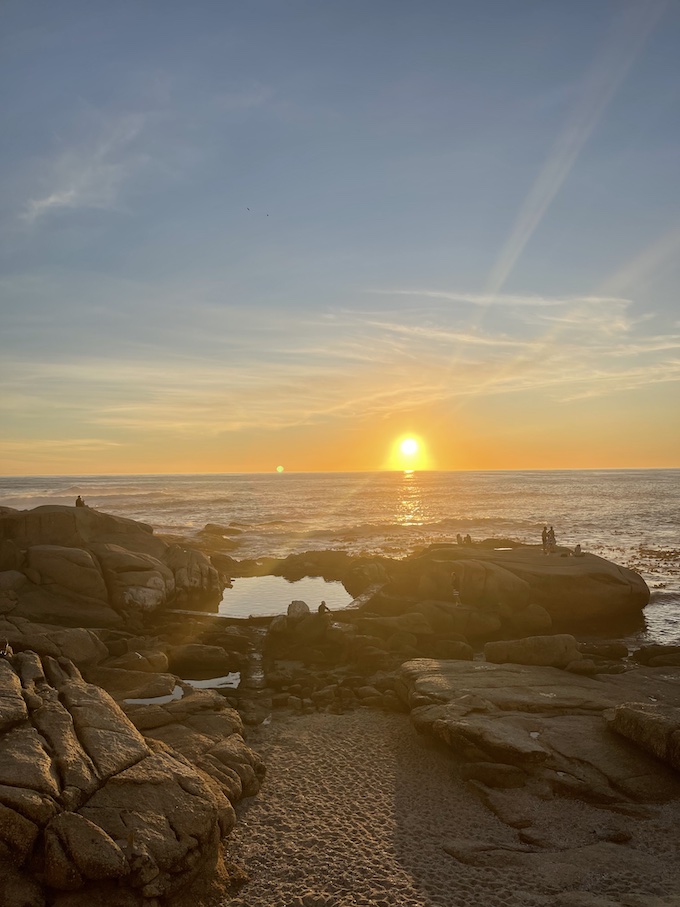
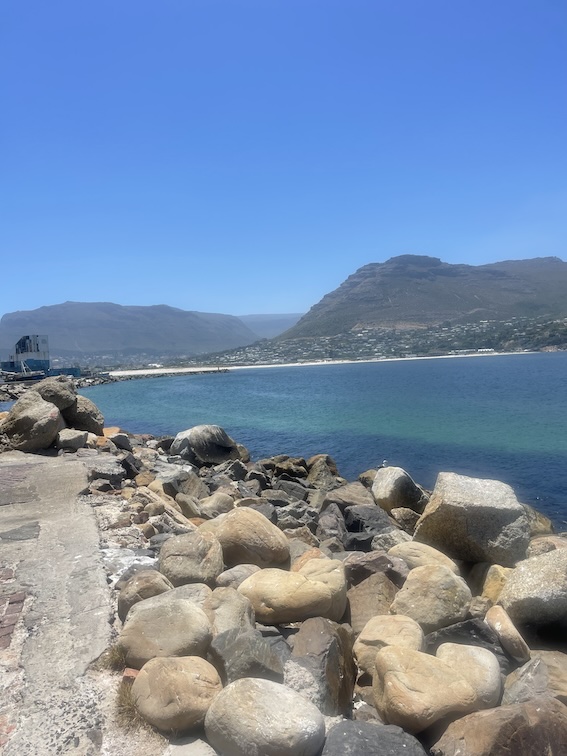
These hidden gems are things that aren’t necessarily quintessential Cape Town must-dos, but I highly recommend them anyway. Some of these took me a little while to discover after I moved to the city, so I’m sharing them with you here to put you in-the-know.
1. West Coast National Park
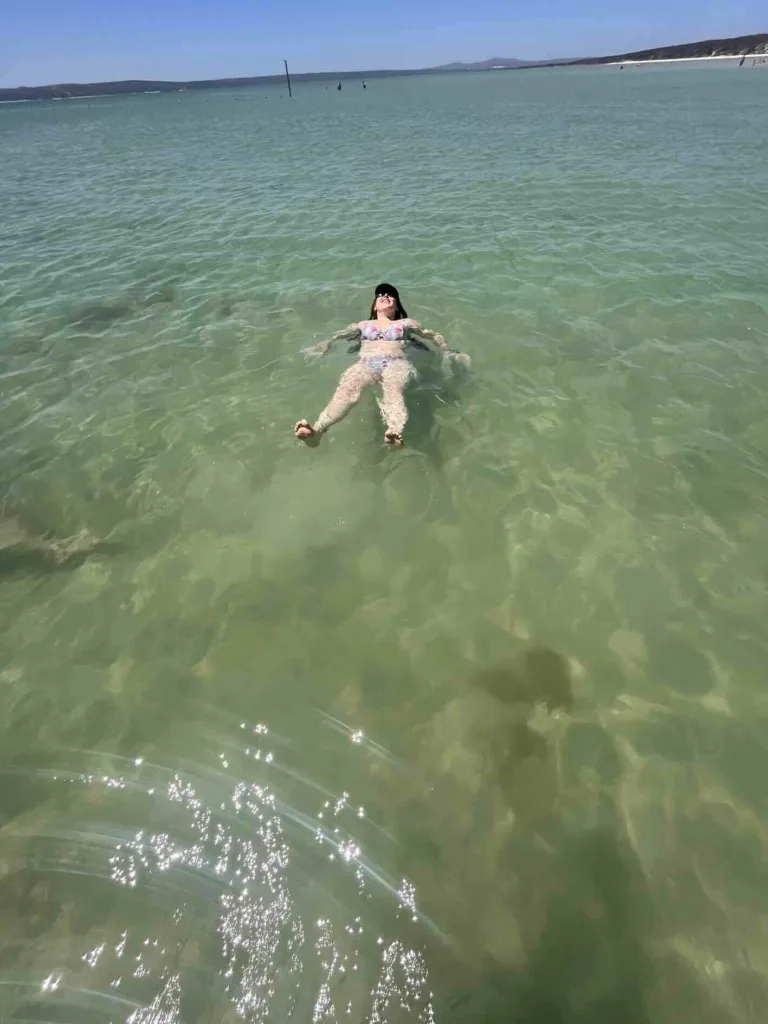
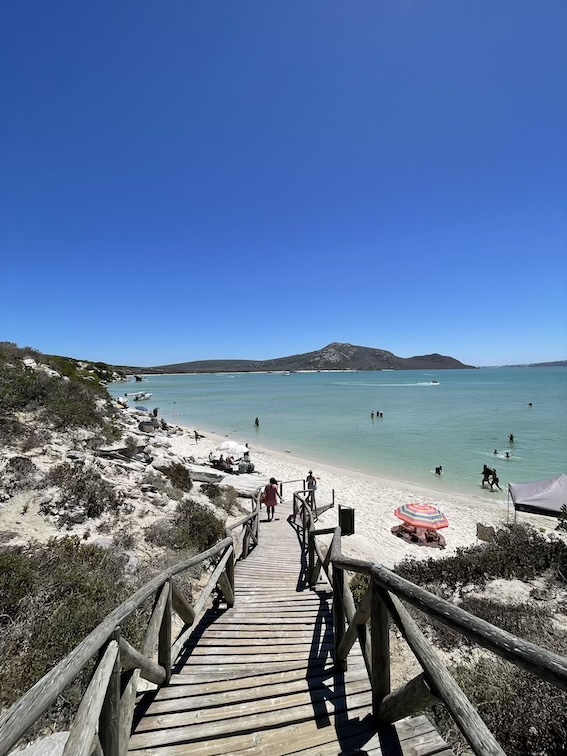
Oh my gosh. If you’re hiring a car in Cape Town, I cannot recommend driving out to West Coast National Park enough. The marine protected area is home to the Langebaan Lagoon, which is bordered by a beautiful beach and has calm, shallow, WARM water that’s perfect for swimming in.
The beaches in Cape Town tend to have cold and choppy water, so this alone is a treat, but I also love the fact that this is a much quieter spot with no crowds or hawkers. It’s definitely worth the 1.5-hour drive!
2. The Leopard Bar at the 12 Apostles
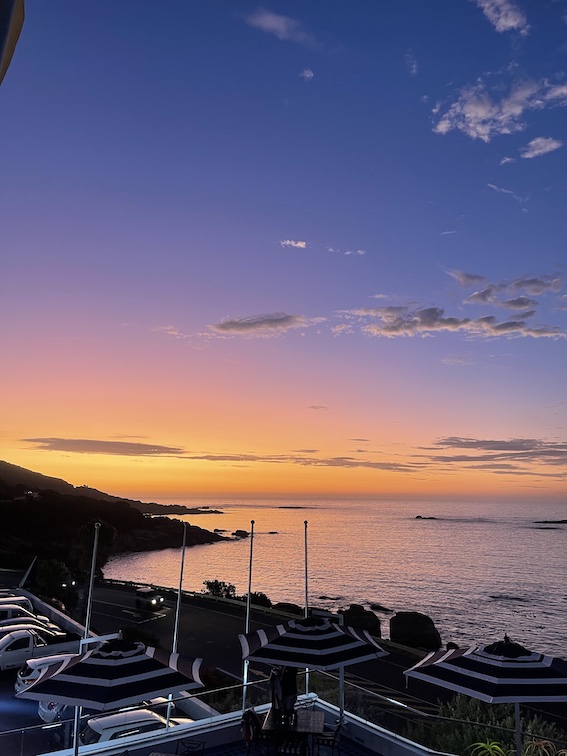
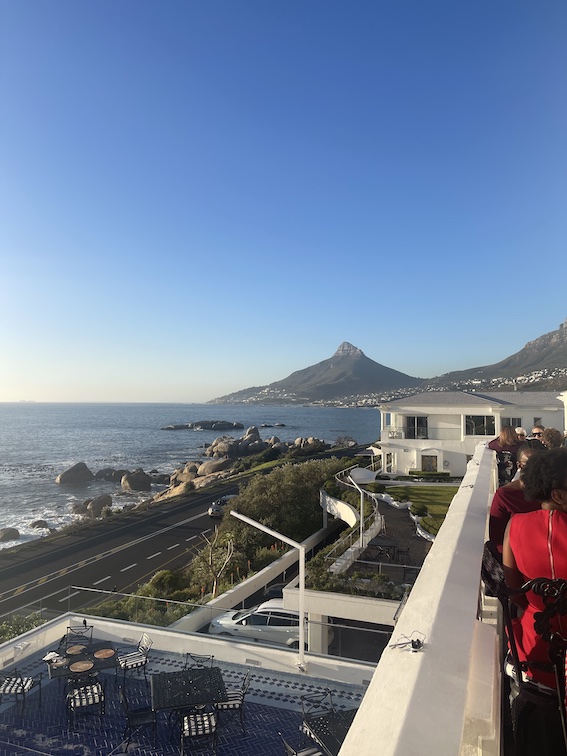
The 12 Apostles is a luxurious hotel in Camps Bay, but it’s a little further north of the main drag, so most people tend to miss it. But their loss is my (and now, your) gain, because the sunset views from the balcony at the hotel’s Leopard Bar are absolutely spectacular.
I also just love how serene it is out here – you feel a million miles away from the hustle and bustle. No reservation is usually necessary and the piña coladas are exceptional.
3. Woodstock Street Art
Woodstock was once an industrial part of Cape Town, but now it has evolved into an artsy enclave, and the colourful street murals certainly pay testament to this. It’s possible to go and explore the murals between Albert Road and Victoria Road by yourself, but I would recommend joining this guided street art tour. A local artist will take you around to make sure you get to see all of the most impressive murals and share the social, political, and cultural significance of each one.
4. Saunders Rock Beach

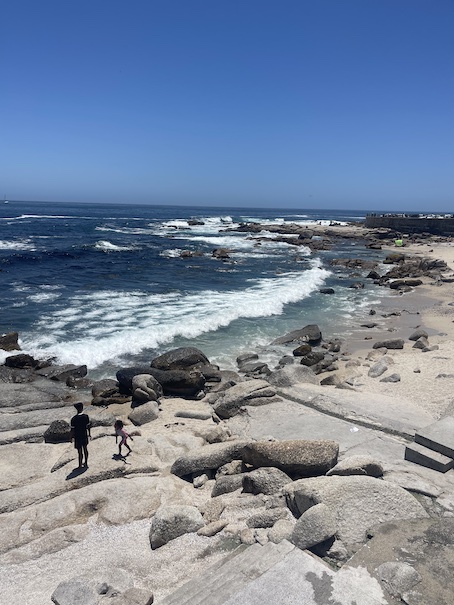
Saunders Rock Beach is the ideal spot for sunset picnics. It’s located in Sea Point, so it’s super easy to get to, and the rockpool here is very popular with Wim Hof enthusiasts (or, as I like to call them, lunatics).
The water may be cold but watching the sunset from here is always a treat, and my friends and I often come down here during the summer for picnics in the evening. There’s such a lovely atmosphere here and the regulars make everyone feel welcome!
5. Seal Island, Hout Bay
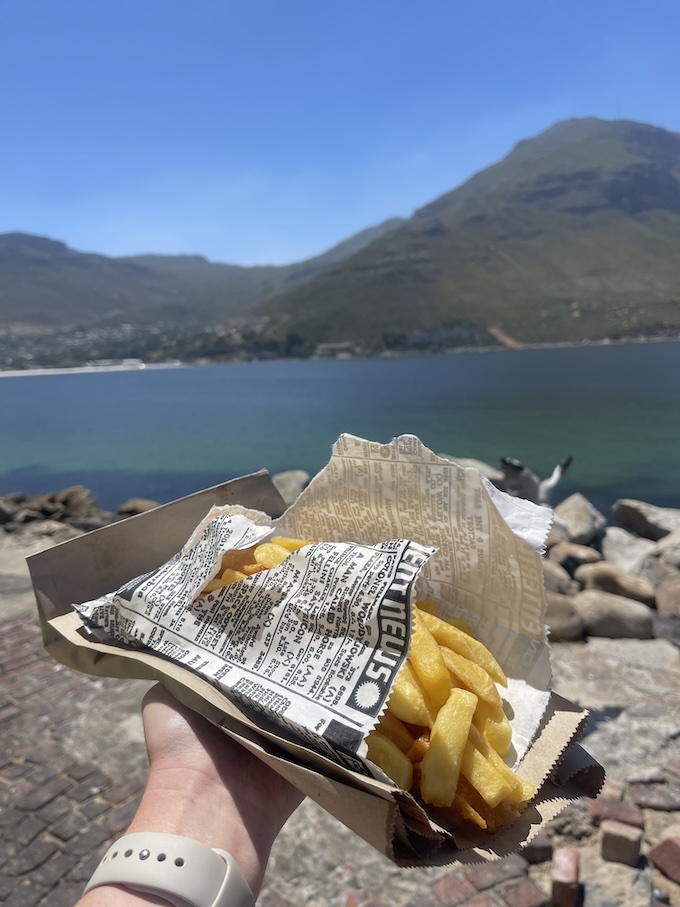

Seal Island is just off the coast of Hout Bay, and it’s home to thousands and thousands of seals! Sadly, snorkeling with the seals is not permitted at the moment but you still visiting by either kayaking around the island or taking a quick boat cruise.
Afterwards, I highly recommend heading to Fish on the Rocks to grab fish and chips. They’re just as good here as they are back home in England!
5 Best Restaurants
1. Kloof Street House
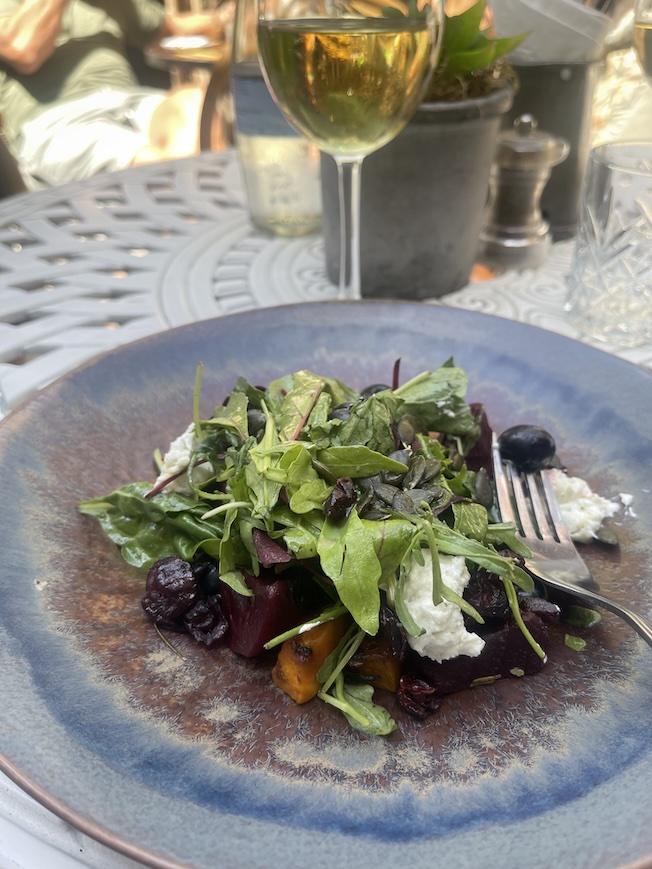
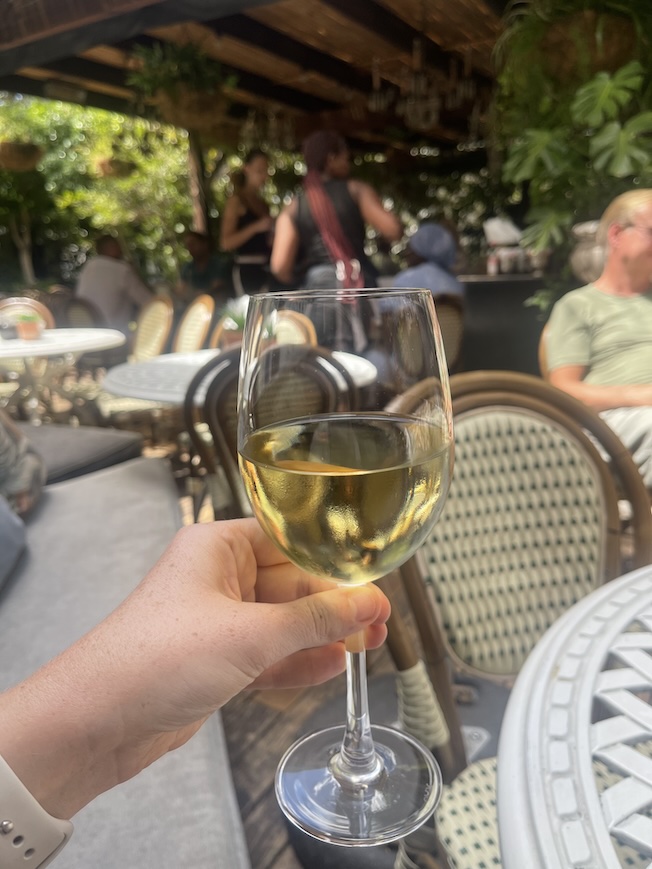
If you ask me, Kloof Street House is one of the best restaurants in Cape Town – and I know I’m not alone in this opinion! The food here is exquisite, but not so pretentious that it’s off putting. I also love the Gatsby-esque decor inside, but having lunch out on the patio is always a treat, and their lunch specials are definitely worth checking out.
2. Life Grand Cafe
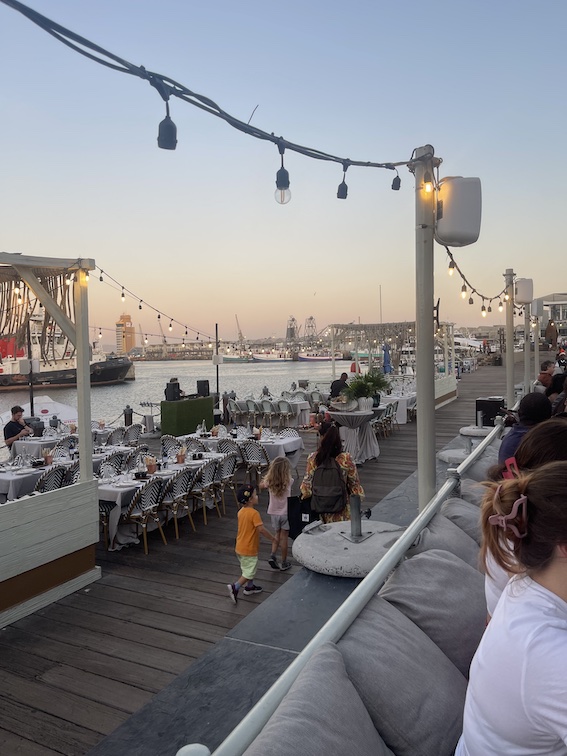

I love the Life Grand Cafe because it’s right on the harbour’s edge in the buzzy V&A Waterfront, so it’s a very scenic place to grab a drink and a bite. But I also love the food here, from the pizzas to the fresh poke bowls, although the vodka seafood pasta is my favourite. The service can be a little bit slow as it gets busy, but I think it’s worth it as the prices here are very competitive, especially for the location and the quality.
3. Cousin’s Trattoria
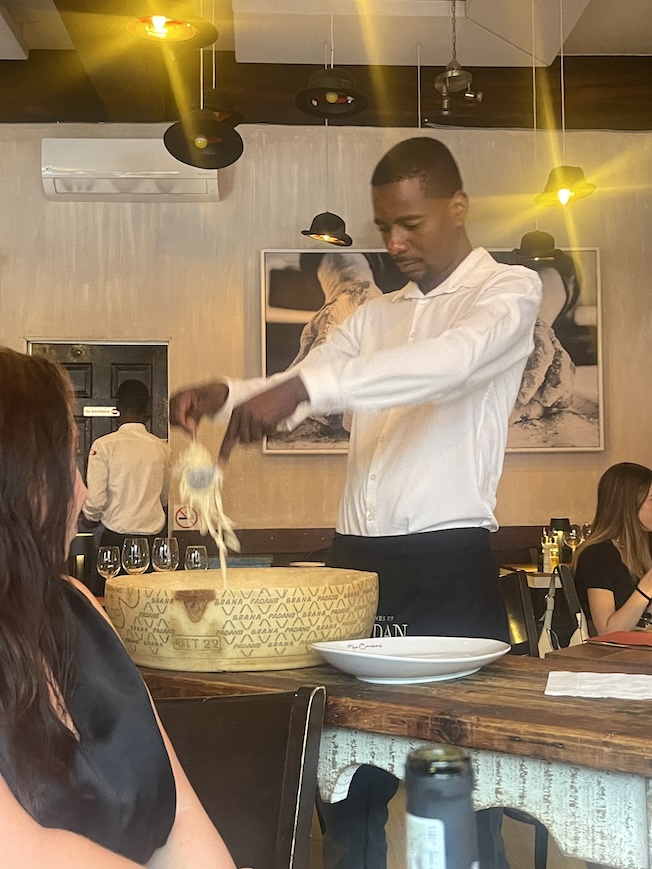
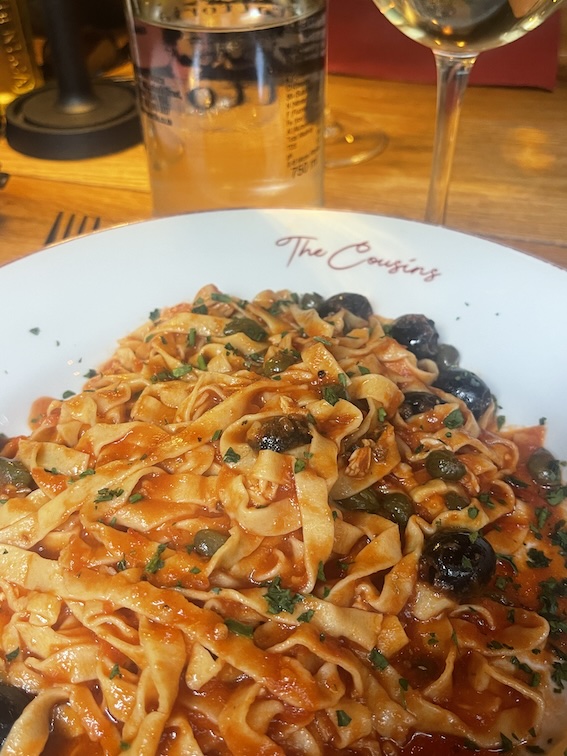
If you’re in the mood for Italian, Cousins Trattoria in the CBD is the place to go. I first heard about this place because its cheese wheel pasta went viral on TikTok, and as soon as I visited, I fell in love. It’s a hole-in-the-wall on a slightly dodgy street that you’d never look twice at if you didn’t know better, but once inside it’s friendly and welcoming, with great service and amazing food. Just make sure to book a table, because the word is well and truly out about Cousins!
4. Jarryd’s Brunch & Bistro
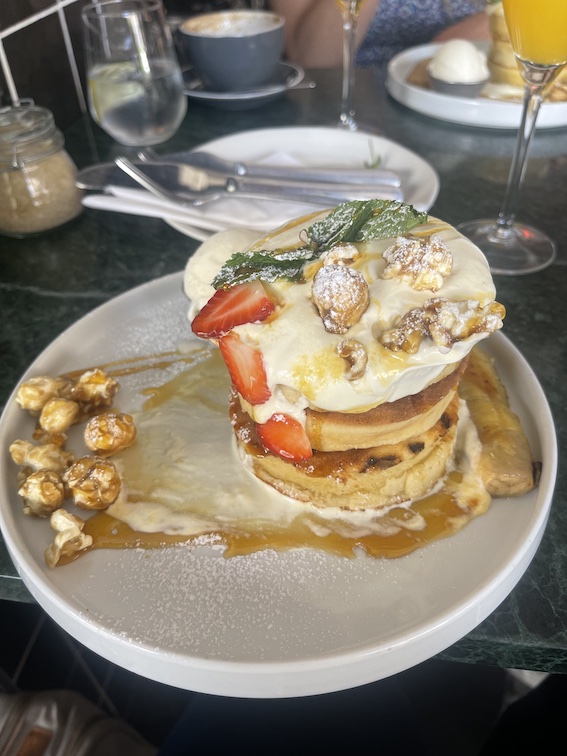

I LOVE Jarryd’s – and so did Phil from Somebody Feed Phil! It’s my favourite place for brunch in Cape Town, thanks to the enormous stacks of fluffy pancakes they serve, although I’m a big fan of their huevos rancheros, too. It’s also one of the only spots in the city where you can find bottomless mimosas, so if that’s your vibe, get yourself here ASAP.
5. The Duchess

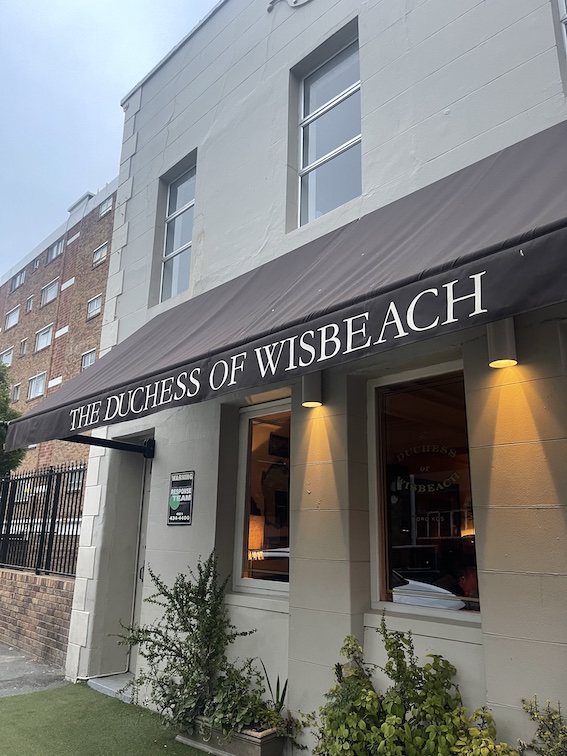
Okay, so I won’t lie to you, the Duchess is more about the jol than the food (that’s South African for “party”). It was the tales of debauchery and dancing on tables that led me to the Duchess, and while all of that is a ton of fun, the food here is also really delicious.
And if you don’t want to go hard, you can always visit on a Tuesday or Wednesday, when dinner is a more civilised affair. But if you’re going on a Thursday, Friday, or Saturday, I recommend the truffle mac and cheese, as it will line your stomach perfectly.
5 Best Bars
1. Van Hunks
Look, it may not be the most dazzling bar in Cape Town, but Van Hunks is my stomping around and I just love the vibe here. It’s got everything I like – cheesy tunes, classic rock, low prices, and friendly bartenders (we love you, Trevor). I even have Van Hunks merch and once got into a good-spirited argument with a fellow patron about which of us was a more loyal customer (answer: me).
2. House of Machines
House of Machines is so much fun. They’re known for live music and their fantastic old fashioneds, although I don’t drink those myself. However, I am always impressed by how reasonable the drinks prices are here, and it’s one of my go-tos on First Thursdays.
3. The Lawns
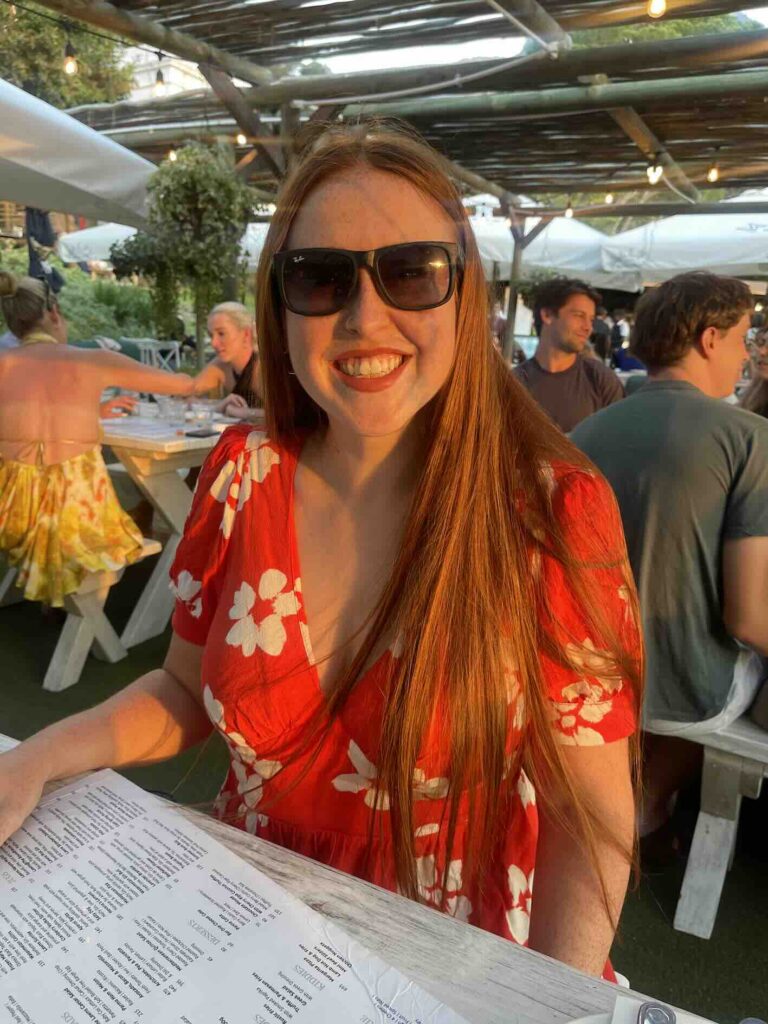
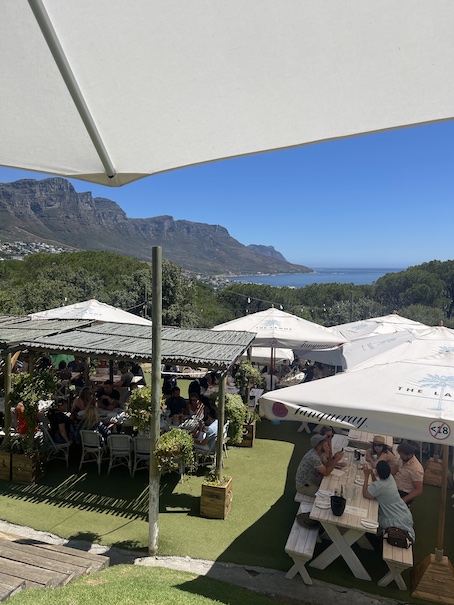
Hidden away along the backstreets of Camps Bay, the Lawns is the perfect day drinking spot. It feels like you’re drinking at a fancy garden party, which I’ll never say no to! I recommend booking the third lawn or the oak deck so that you’re able to see the ocean and the Twelve Apostles while you sip your cocktails.
4. Athletic Club and Social
If you’re looking for a classy place to drink and dance, the Athletic Club and Social is so much fun. It does get pretty busy but it’s always a good time, with three floors playing different kinds of music every Friday and Saturday night. The cocktails here are really nice, too – El Diablo is my favourite.
5. Open Wine
Open Wine is in the heart of the CBD, and it’s the perfect place to try the best wines that the Western Cape has to offer. They even sometimes offer free wine tastings here, and their Sunday Jazz Jams are a summer staple. Plus, it’s located just off of Bree Street, so if you’re looking for somewhere to continue the night after your civilised wine tasting, then you’re certainly in the right place to do so!
Tipping Culture

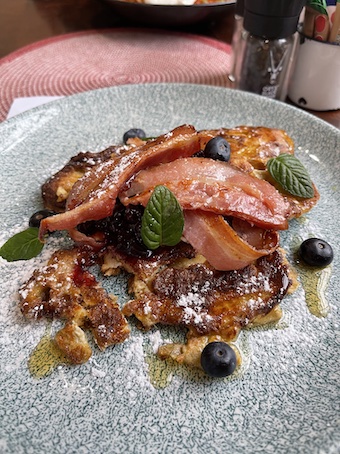
Cape Town has a strong tipping culture, and there are a few things that I think are important to know about this.
Bars and restaurants
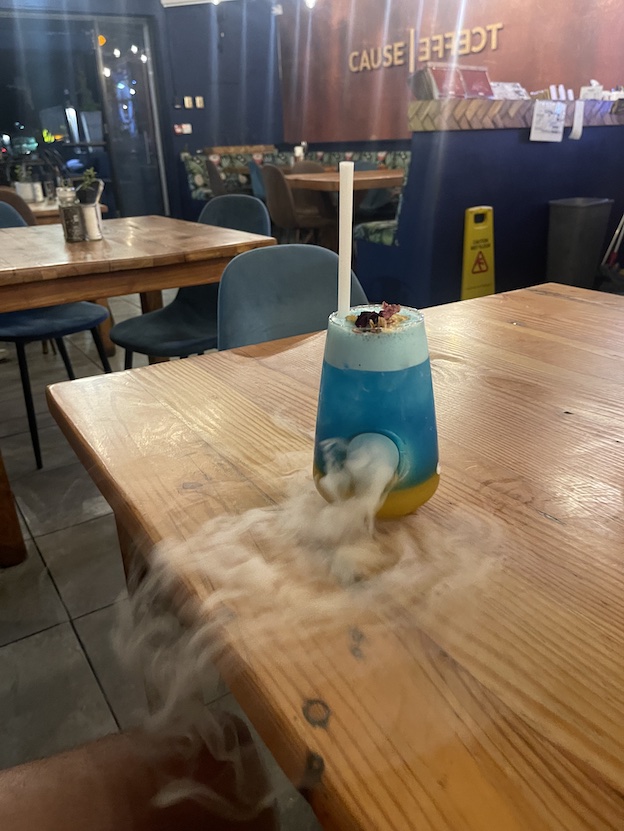
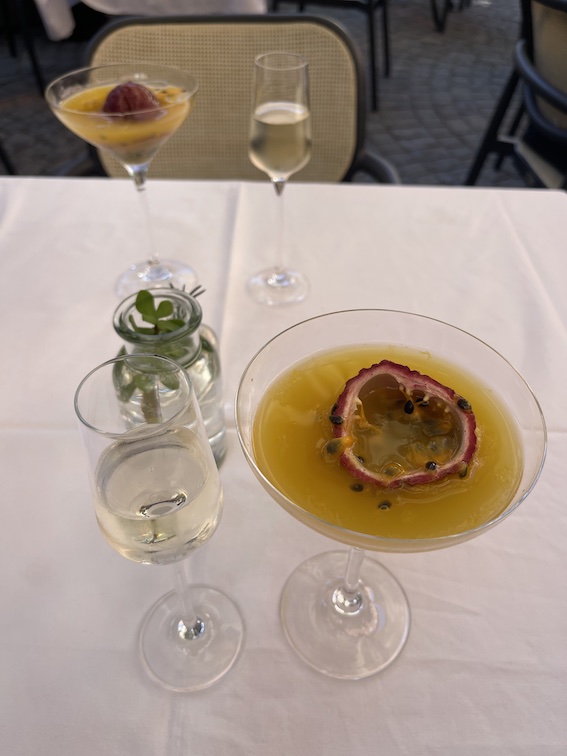
First things first, 10% is the minimum tipping rate at bars and restaurants. 12.5% is probably a bit more standard these days, though.
To leave a tip using your credit or debit card, ask the server to round up the amount you’re paying, as there’s usually not an option to add a tip separately.
For example, if my bill is R100 and I want to tip 15%, I ask the waiter to “make it R115” when they type the transaction amount into the machine. I found it really bizarre at first, but don’t worry, the servers do get this money!
Petrol stations
Secondly, petrol stations here aren’t self-service, so it’s standard to tip your petrol attendant too. Usually just R5-10 is fine, but I would recommend tipping R20-50 if you ask them to clean your windscreen or check your tyres. Again, if you don’t have cash, you can tip with a card by adding the tip to your total amount, rather than doing a separate transaction.
Car guards
One thing I had never come across prior to arriving in Cape Town was car guards. These guys are often found at free car parks, and they ask for tips in exchange for watching your car.
They are not employed by anybody and you are under no obligation to tip them. If you want to, R5 is enough, or whatever change you have rattling around will suffice. I like to tip car guards who genuinely help me out, but don’t let them intimidate you into giving them money.
Other Useful Things to Know
Definitely get a local SIM card
A local SIM is a must for Cape Town. Cafes and restaurants here aren’t always very WiFi friendly, and a SIM is a godsend during load shedding. Plus, it makes finding your way around town and calling Ubers much easier.
I recommend getting a Vodacom SIM, as I find they provide the best coverage. There’s a legit Vodacom booth at arrivals in the airport and they will have you up and running within minutes. The SIM card itself costs about R10 and then there are different data bundles available. I usually buy a 30-day 10GB bundle, which costs around R499.
You CAN drink the tap water
Yup, the tap water in Cape Town is absolutely fine to drink. I’ve been drinking it for years without any issues, so don’t feel like you need to buy bottled water all of the time.
Strict alcohol rules
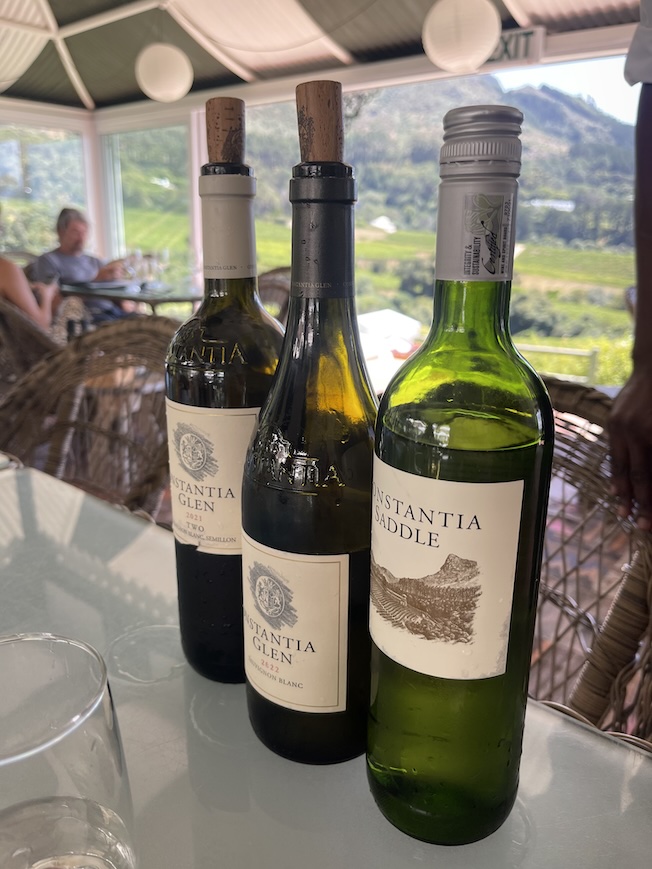
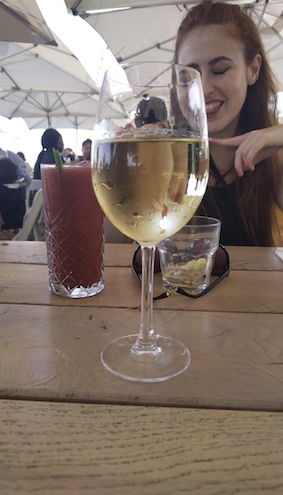
Licensing laws in Cape Town are pretty strict. You can’t consume alcohol in a public space, so beach beers are a no-no! I was also surprised to learn that takeaway alcohol from bars is also not allowed.
You can’t buy beer or liquor in the supermarket, either, only wine, although most supermarkets have a liquor store right next door. Supermarkets also usually stop selling alcohol early the day before a public holiday, too.
Try to avoid rush hour traffic
Sometimes, rush hour is difficult to escape, but whenever you can, I’d recommend trying to avoid coming into the city or driving around the CBD between 7 am and 9 am, or heading out between 4 and 6 pm.
The traffic gets crazy, especially during the summer, and even short journeys from one side of the city to the other can take way longer than usual. It’s not the end of the world, but wait or walk if you can!
Bring a jacket for night time
Even during the hot summer months, the temperature in Cape Town often drops at night and the wind can get pretty chilly, so it’s worth packing a jacket for the evening. Sometimes, during the day, it’s hard to imagine needing an extra layer, but then I find myself grateful for one after dark.
Expect wind
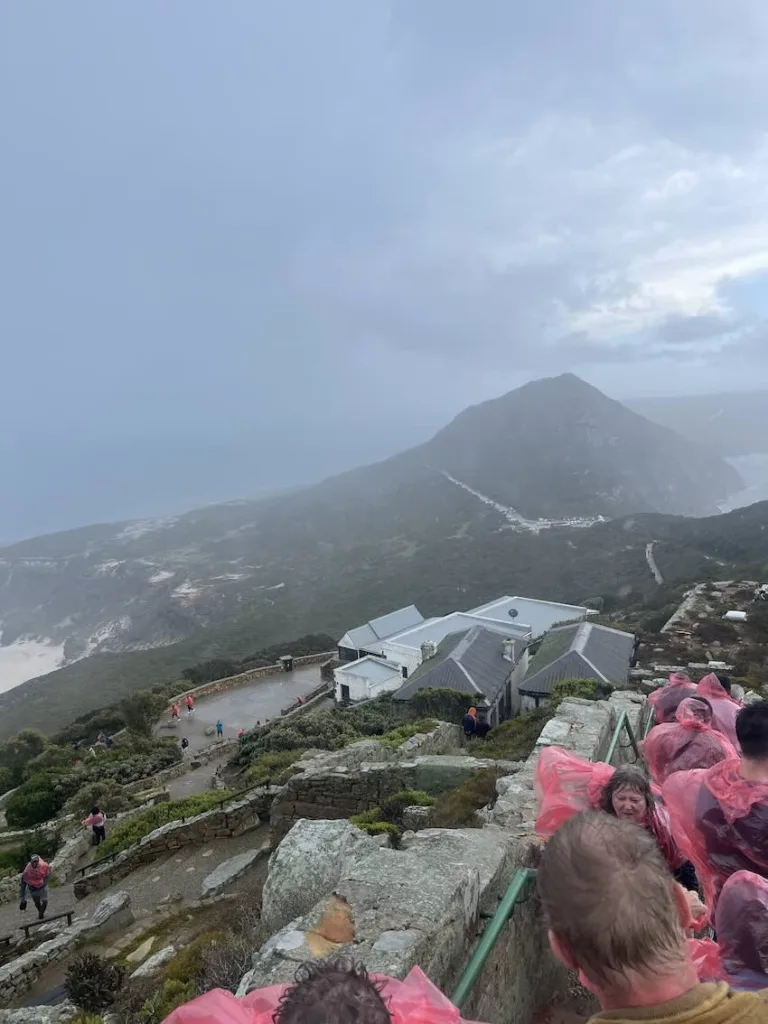
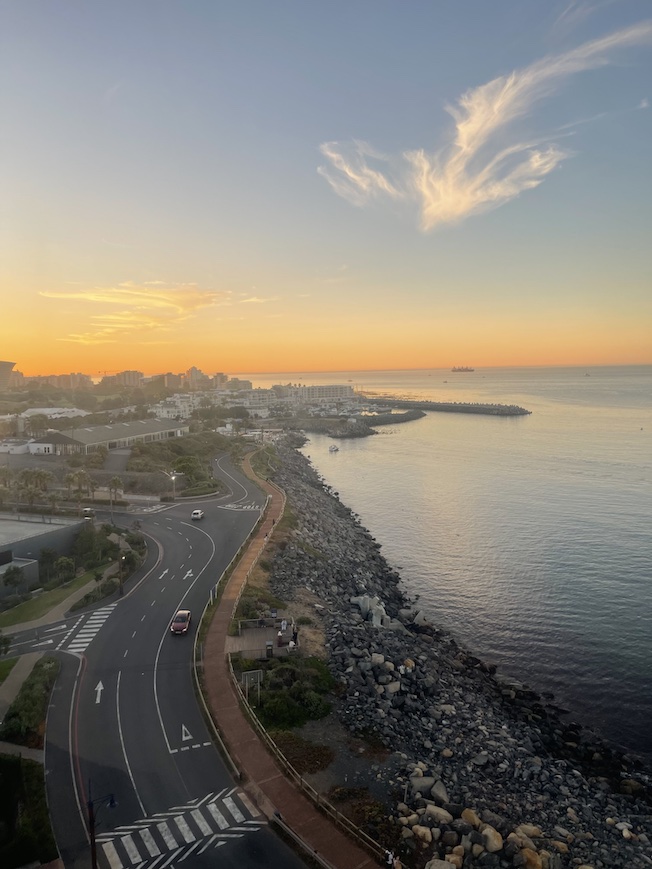
Cape Town is a very windy city. In fact, the locals call the wind “the Cape Doctor” because it’s said to blow all of the pollution away and give the city clean air! It’s not windy all of the time here, but it can get pretty strong. In fact, it blew the pane of glass out of my apartment window once.
The good news is that the Clifton beaches are pretty well sheltered from the wind. However, if the beach is empty on a beautiful day, that’s a good sign that you’re about to get sandblasted.
What to pack
I’ve got a full packing list here, but must-bring items include:
- Refillable water bottle
- Power adapters
- Power bank
- Quality sunscreen
- Kindle
- Backpack
- Light jacket
- Activewear
- Belt bag or bumbag
- Comfy shoes for lots of walking
Safety Tips
Scams
Cape Town is not a super scam-filled city, but there are a couple of things to be aware of. I’ve got a full guide to scams in Cape Town here, but I’ll give you a quick bullet list here:
- People begging for baby formula and nappies (they just return it for cash)
- Airport taxis (use Uber or a private transfer)
- Fake officials telling you need a walking permit (these do not exist)
- A skinny white guy claiming he has been kicked out for being gay and HIV positive. He asks for cash, nappies, or other supplies, but he’s been pulling this stunt for YEARS.
- Strangers striking up a conversation in the street for no apparent reason
- Someone “helping” you at an ATM
Honestly, most of these scams happen in the CBD, usually on and around Long Street. There are lots of hostels and tour offices here, so it’s where a lot of ATM scams and pickpocketing happens.
It’s also a hub for the walking permit scam! Often, these fake officials will use the excuse that the street is closed due to an official visit to make the scam seem more convicing.
Honestly, I don’t think that Long Street is that great anyway. I don’t spend much time here. It’s a bit grimy, and there are way better parts of the city to explore!
Still, if you fancy visiting one of the pubs here or just use it as a cut-through, just be on your guard. Walk with purpose, be careful with your valuables, and don’t talk to strangers!
Begging
Homelessness is rife in Cape Town and you will be approached multiple times per day and asked for money. If you’re walking and someone approaches you, I find the best approach is simply not to engage. I know it seems callous, but often saying “no, sorry” can result in you being followed, which I find deeply uncomfortable when walking alone.
Also, if a stranger on the street compliments you out of the blue, they are not being genuine. They are going to try to strike up a conversation and ask you for money.
Cat-calling
I won’t lie to you, ladies, cat-calling in Cape Town is pretty bad.
In fact, it’s terrible.
In the CBD, you cannot walk down the street as a woman without getting cat-called at least once. It’s not so bad in other areas but it does happen. In safe areas like Sea Point and Green Point, I just block it out with headphones, although I don’t feel comfortable using them in the CBD.
Cat-calling makes my blood boil, but usually it’s just pathetic men trying to make themselves feel big and strong. It’s always best to ignore it and keep walking. I’ve found that if I don’t engage, they don’t follow me. I try to remember that life is clearly not going particularly well for a man who is standing on the street and heckling women.
Don’t walk around at night
Probably my biggest safety tip in Cape Town would be to not walk alone at night. It’s worth using Uber when bar hopping on a night out, even for short journeys when you could realistically walk.
The only exceptions are when you’re bar hopping on the same street, such as Kloof Street or Bree Street. In that case, it’s fine to walk from one bar to another as a group, but just be aware of your surroundings.
Stick to safe areas
One of the best ways to stay out of trouble in Cape Town is to stick to the safer neighbourhoods of the city. And honestly, that’s where all of the good stuff is anyway! I generally hang out in:
- Sea Point
- Green Point
- De Waterkant
- Clifton
- Camps Bay
- Tamboerskloof
- Gardens
Where to report a crime
If you’re careful, you should be absolutely fine in Cape Town. Most people I know who have been mugged were walking around in a quiet area late at night. However, if you do need to report a crime, I recommend heading to the Central Police Station.
I have never had to report a crime but I did need to get an affidavit once, and they were really helpful. The police here also helped my friend track down his phone and get it back when it was stolen, so I’d recommend heading here to file a report.
Apps you need
- EskomSePush (for load shedding)
- Uber
- Checkers 60/60 (for ordering groceries – they deliver within under an hour!)
To sum it all up….


Thanks so much for reading this blog post; I hope it proved helpful. Cape Town is an incredible city, and I’m so jealous that you’re going to experience it for the first time! I fell in love with it instantly, and what was supposed to be a 3-month jaunt turned into a lifelong obsession with the place. If you need more resources to help you plan your trip, I recommend starting with the following:

Your article is an excellent read, thank you. My wife and I are looking to go to Cape Town 3 October for 10 days (ish). Will probably book flight and hotel together, staying centrally. Plan is to use the hotel as a hub while we venture out to explore CT and surrounding areas, winelands etc.. Grateful for any steers on a 2 or 3 day safari please?
Hi Wayne! Have a great time in Cape Town! I’m not sure if it’s possible to do a 2-3 day safari from the city, you’d probably have to fly to KZN or the Kruger. You can do the Aquila Safari in one day or stay at the reserve overnight but it’s not a real safari unfortunately.